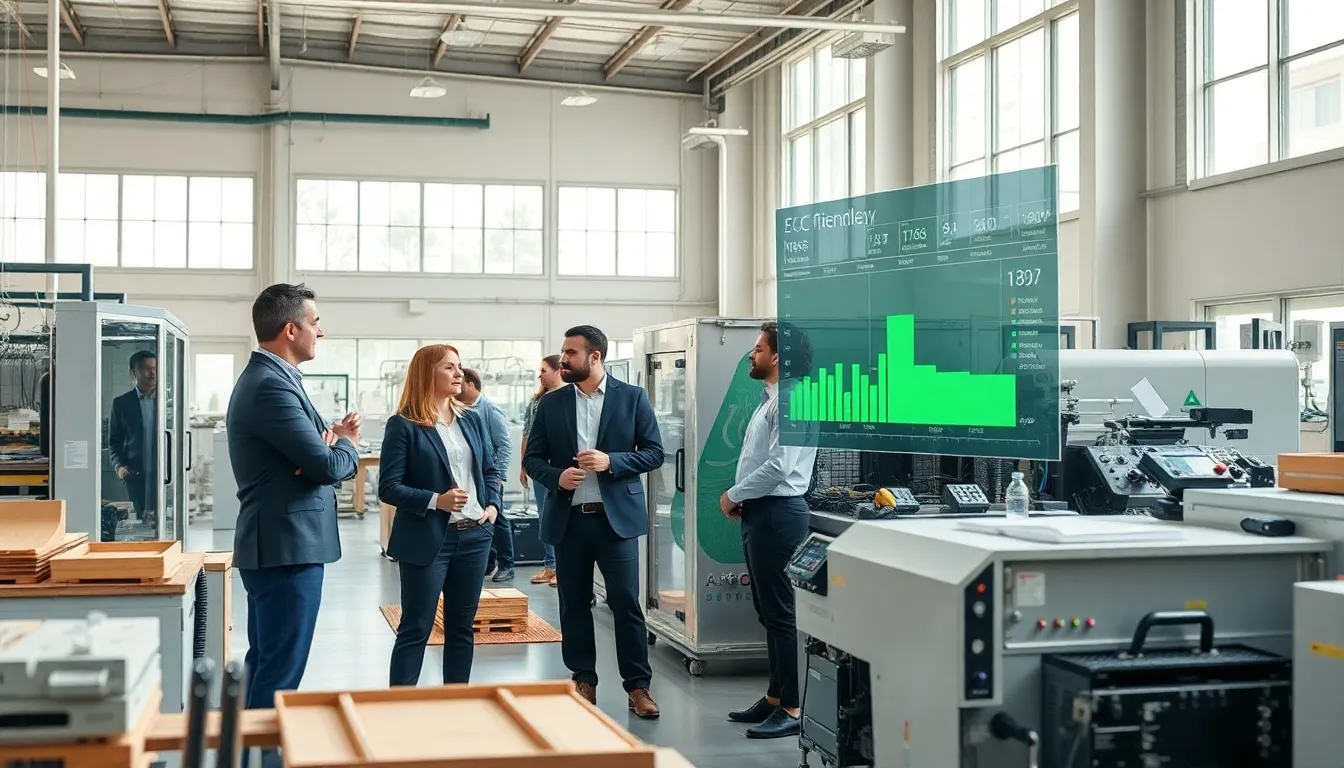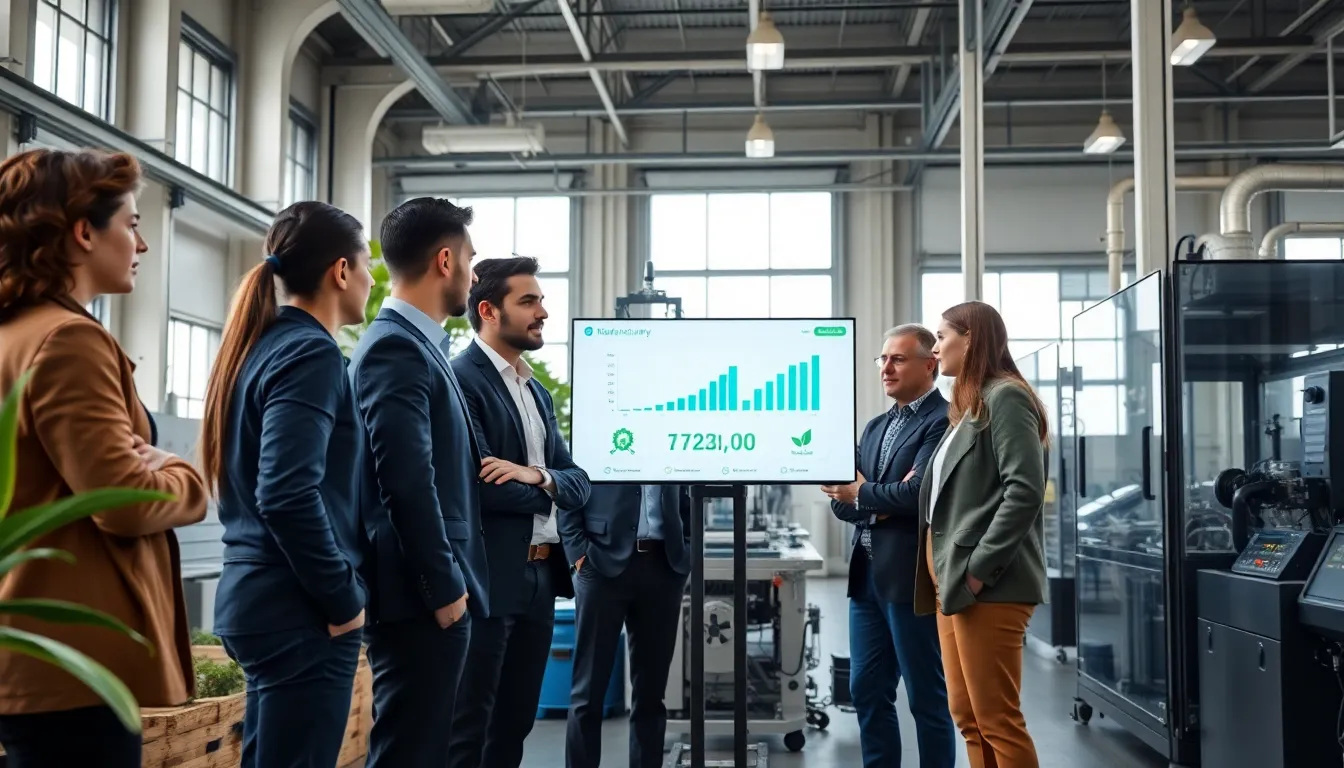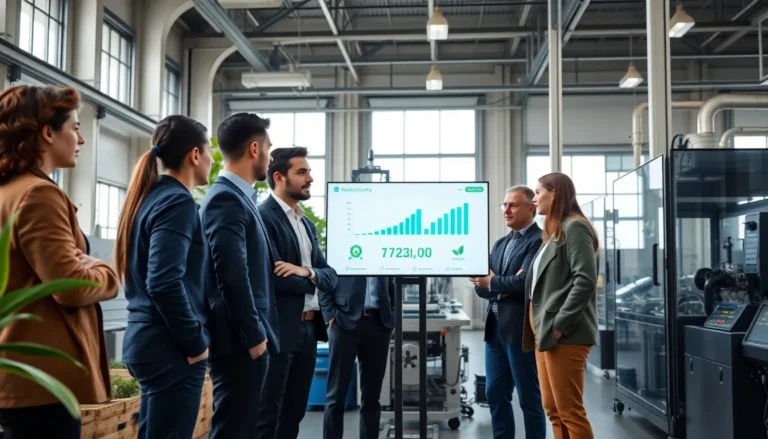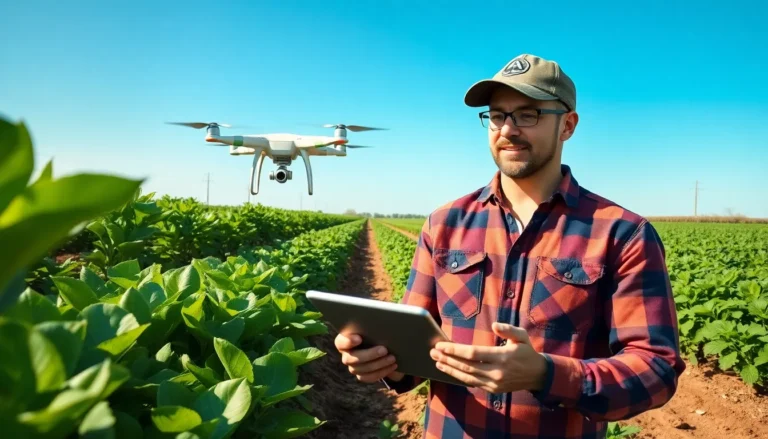Table of Contents
ToggleImagine a world where factories don’t just churn out products but also care for the planet. Sounds like a dream, right? Well, with sustainable manufacturing technology, that dream is becoming a reality. The manufacturing process is being overhauled, blending efficiency with environmental consciousness. Not only is this a smart move, but it’s also essential for keeping our planet from turning into a giant landfill. Let’s jump into how this transformative technology is shaping our future – and why you should care.
Understanding Sustainable Manufacturing

Sustainable manufacturing refers to the ongoing effort in the manufacturing industry to create products with minimal environmental impact. This encompasses all stages from design and production to distribution and disposal. It’s a holistic approach, considering the entire lifecycle of a product. Essentially, sustainable manufacturing seeks to balance economic viability, environmental health, and social equity. The details can get intricate, involving numerous strategies and practices that ensure a minimal carbon footprint while also maintaining productivity and profitability.
The Importance of Sustainability in Manufacturing
The necessity for sustainability in manufacturing is more crucial now than ever before. As global awareness of climate change and resource depletion increases, manufacturers face pressure to innovate while meeting new regulatory standards. The importance of sustainability can be boiled down to several key factors:
- Environmental Protection: Sustainable practices help mitigate pollution and reduce waste. This not only benefits the environment but also improves community health and quality of life.
- Resource Efficiency: Companies using sustainable methods often see a reduction in resource consumption, leading to lower costs in production and materials.
- Market Demand: Consumers today prefer brands that prioritize sustainability. This shift in consumer preference is a powerful incentive for manufacturers to adopt greener practices.
- Regulatory Compliance: Governments worldwide are implementing stricter environmental regulations, making sustainability not just advisable, but necessary.
Key Technologies Driving Sustainable Manufacturing
Several technologies are at the forefront of driving sustainable manufacturing practices. These innovations encompass various areas, including:
Innovative Processes and Techniques
Manufacturers are increasingly leaning on cutting-edge processes to minimize waste and energy consumption. Techniques such as lean manufacturing, which focuses on reducing waste without sacrificing productivity, and green chemistry, which advocates for cleaner, safer processes in product manufacturing, are becoming mainstream. These techniques streamline operations and enhance operational efficiency.
Material Selection and Waste Reduction
Sustainable materials are gaining traction, with manufacturers opting for renewable, recyclable, or biodegradable options. Advanced techniques, including life cycle assessment, help manufacturers evaluate the environmental impacts of their material choices, guiding them toward more sustainable alternatives. Waste reduction strategies, such as closed-loop systems where waste materials are repurposed, further enhance sustainability efforts.
The Role of Automation and IoT
Technology giants are integrating automation and the Internet of Things (IoT) into manufacturing processes. Smart factories equipped with sensors and automation reduce energy consumption and enable real-time monitoring of production efficiencies. This ensures that manufacturers can optimize their processes continuously, making adjustments toward more sustainable outcomes.
Case Studies of Successful Sustainable Manufacturing
Examining real-world examples helps illuminate how companies are successfully implementing sustainable practices:
- Interface Inc.: This carpet tile manufacturer has committed to making all its products with recycled materials and achieving a zero negative impact on the environment. Their efficient use of energy and resources demonstrates how sustainability can go hand in hand with profitability.
- Unilever: With its Sustainable Living Plan, Unilever aims to halve its environmental footprint while doubling its business. Through innovative manufacturing techniques and a focus on sustainable sourcing, they’ve established themselves as a leader in environmentally friendly practices.
- Tesla: Known for revolutionizing the automotive industry, Tesla is also leading the charge in sustainable manufacturing. By emphasizing battery recycling and renewable energy sources in their production, Tesla sets a benchmark for others in the industry.
Challenges and Limitations of Sustainable Manufacturing Technologies
Even though the bright prospects of sustainable manufacturing technologies, challenges remain. High initial costs for implementing advanced technologies can deter manufacturers, particularly small to medium enterprises. Also, supply chain disruptions can complicate the sourcing of sustainable materials, leading to inconsistencies and hurdles in production. Training employees on new systems and processes can also require significant time and resources, creating another barrier to rapid adoption.
The Future of Sustainable Manufacturing
The future of sustainable manufacturing appears promising, driven by innovation and a collective shift towards environmental consciousness. Trends such as circular economy models, where products are designed for longevity and recyclability, will likely take center stage. As technology continues to evolve, we can anticipate even more sophisticated solutions, integrating artificial intelligence for improved efficiency and sustainability. Continued collaboration among industry, consumers, and governments will foster an environment ripe for sustainable innovation.







